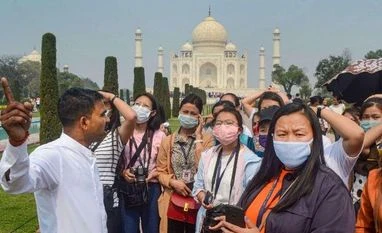An emergency rate cut by the Fed is clearly a preemptive measure to contain the damage. However, the stock markets in the US fell after going up for a while in response to the rate cut. Bond prices went up and the 10-year US government bond yield fell below the 1 per cent mark for the first time. The Fed’s policy action and the reaction of both the stock and bond markets, in a way, reflect the extent of uncertainty posed by coronavirus. The situation is evolving and it is still not very clear as to what extent coronavirus will affect the global economy.
As things stand today, the supply chain disruption, originating in China — the epicentre of the outbreak — could affect production across the world. Output and trade could get hampered because of outbursts in other countries as well. Countries such as Italy and South Korea have been hurt significantly. There have been deaths in the US and a number of cases have been reported in India as well. Besides disruptions from China, coronavirus can affect output in many countries because of restrictions on travel and the temporary closure of factories to contain the damage. People staying away from marketplaces can affect demand. Further, if businesses are shut for far too long, it could affect wages and employment. Risk aversion could also tighten financial conditions. However, monetary accommodation and a possible fiscal intervention in different countries will help only after the virus is contained. Till the world reaches that point, policy interventions are unlikely to have a significant impact. Therefore, the priority for global leaders should be to contain the virus from spreading further.
For India, the crisis has struck at a time when the economy is going through a severe slowdown. While the number of reported cases in the country is still low, India would do well to prepare for the fallout. Action will be required on the part of the government. First, it is important that the system is able to identify infected people and give them adequate medical care. With India’s below par health care, the real danger is of not being able to detect people carrying the virus. In this context, it is vital for the Central government to work with states and, if required, provide adequate assistance. Second, the government should properly gauge the sectors that will be hit due to supply disruptions. This will help in making alternative arrangements and evaluating if policy changes can help improve supplies from domestic sources. Monetary accommodation is unlikely to help at this stage because the problem is of supply disruption. In fact, supply disruptions could put upward pressure on prices and inflation. This is something that the Reserve Bank of India needs to carefully evaluate.
To read the full story, Subscribe Now at just Rs 249 a month
Already a subscriber? Log in
Subscribe To BS Premium
₹249
Renews automatically
₹1699₹1999
Opt for auto renewal and save Rs. 300 Renews automatically
₹1999
What you get on BS Premium?
-
Unlock 30+ premium stories daily hand-picked by our editors, across devices on browser and app.
-
Pick your 5 favourite companies, get a daily email with all news updates on them.
Full access to our intuitive epaper - clip, save, share articles from any device; newspaper archives from 2006.
Preferential invites to Business Standard events.
Curated newsletters on markets, personal finance, policy & politics, start-ups, technology, and more.
Need More Information - write to us at assist@bsmail.in
)